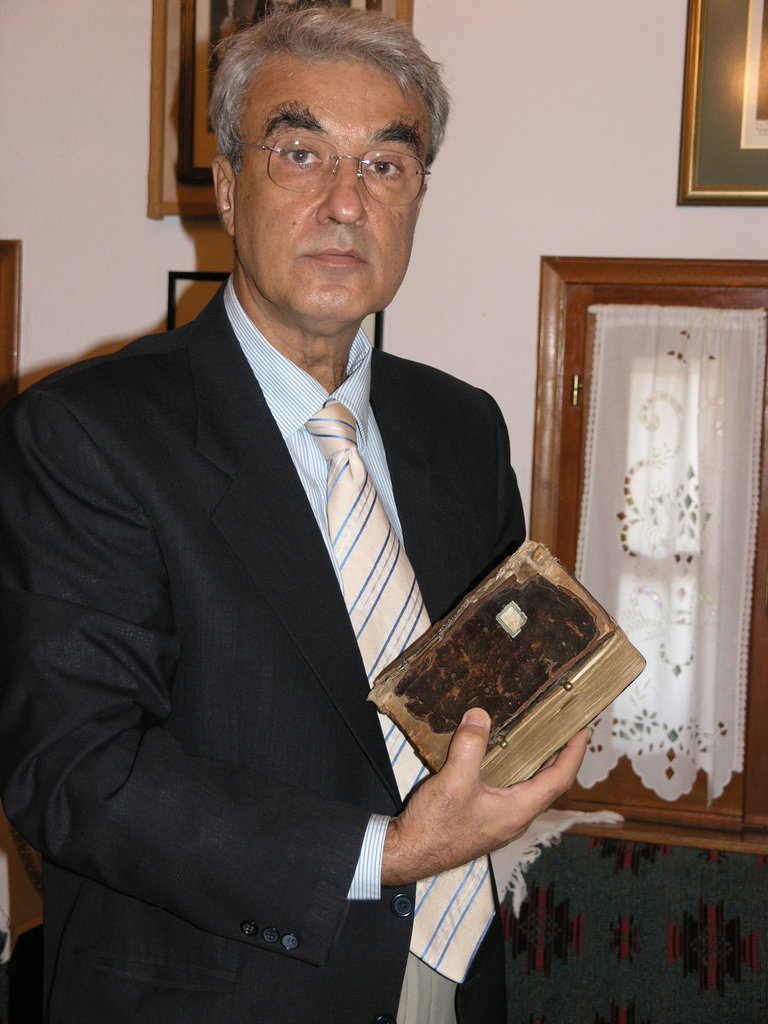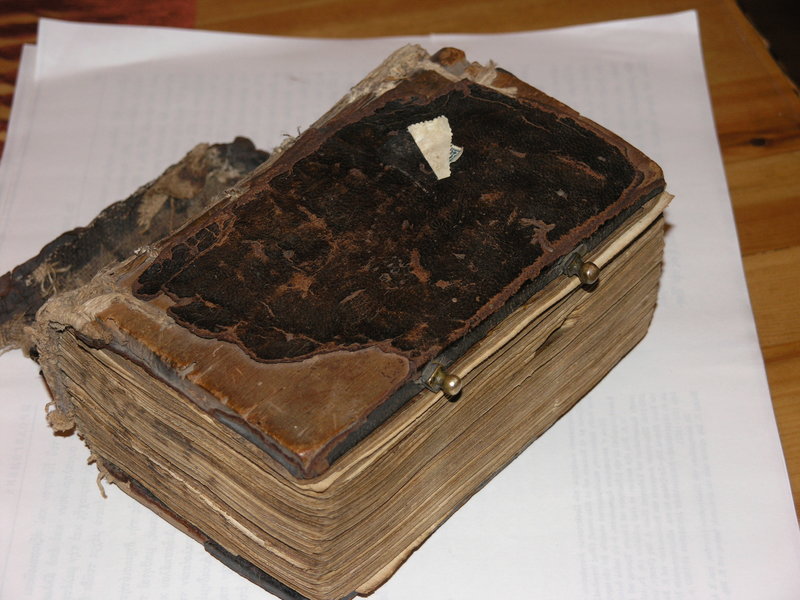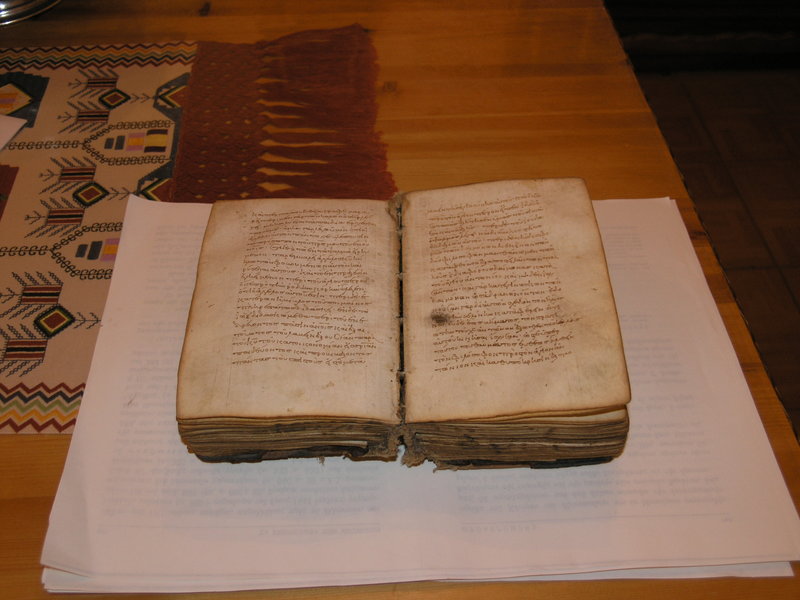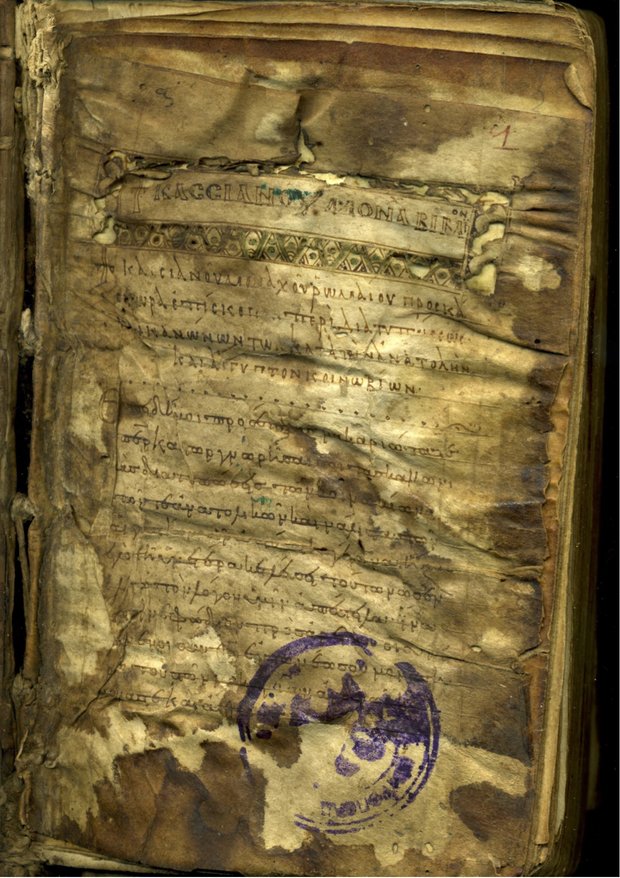Did Damascius demolish the Plotinian Triad?
The etymology of ‘truth’ by Martin Heidegger
The etymology of ‘truth’ as ‘revelation’ and ‘exit from oblivion’ is not a contribution by Martin Heidegger: he just received this from the Greeks (which he said en passant, yet without specifying his sources), particularly from Damascius (which Heidegger did not say).
Did the Stoics posit their God as corporeal?
Truth and Becoming in Anaxagoras
The spirit of Anaxagoras marks a violent transition from a society securing its coherence by means of traditional theological convictions to a society that was in a limbo: it employed reason for its political structures, but hardly was it prepared to allow the authority of reason form its metaphysical ideas. It might be assumed that Socrates was a victim of this cultural transience. Likewise, Aristotle escaped death only by decamping to Chalkis, ‘so that the Athenians should not have the chance to commit a second crime against philosophy’. Anaxagoras introduced the novel (and outrageous to the establishment) idea that the sun is not a divine being but only a fiery stone. Galen wrote that he was a blasphemer against the sun which offers people the different seasons of the year and brings fruits to maturity. Consequently, he lumped Anaxagoras together with such notorious atheists as Epicurus and Diagoras of Melos.

Codex Metamorphosis 573
In July 2008 a ‘miracle’ happened: I was almost through with proofing my book on the Scholia in Apocalypsin, which Adolf Harnack falsely ascribed to Origen a century ago. My two-year struggle to be granted access to the Codex including the sole manuscript of the Scholia had been unsuccessful. Suddenly though a sequence of events brought it about that the door of the Great Meteoron monastery opened to me and I found myself studying the Codex and its palaeographical texts.
The Akoimetoi (the ‘never-sleeping’ monks)
No institution during the fifth and sixth centuries demonstrates better the vicissitudes of the times in relation to imperial politics than the monastery of Akoimetoi. During that period it makes sense to speak of monastic politics, even politicised monasteries, which occasionally resisted bishops and archbishops incurring the consequences of their activity. It took only four years (424-428) for the initial monastery of Akoimetoi to evolve from a promising community, located in the capital centre, to almost ruin.
 The Scholia in Apocalypsin
The Scholia in Apocalypsin
Cassian the Sabaite was not the Scythian of Marseilles. It was another Cassian, more than a hundred years later than that ‘Scythian’ figment. This was a monk of the Laura of Sabas in Palestine, coming from Scythopolis, a town of Koile Syria closely affiliated with Antioch, a student of the sixth-century ‘Origenism’ (of which Origen was all but the father), certainly of Didymus, and most certainly of Evagrius. He was a spiritual son of St. Sabas, the famous founder of the Great Laura. Cassian was the founder of the Zouga monastery in his native Scythopolis in Palestine, and the abbot of another one in 540-547 (the Souka monastery, or the covenant of Chariton, on which light was cast by recent archaeological excavations during the 1990s). Finally, he became the abbot of the Great Laura of Sabas in 548, only to remain in the post for ten months until his death on the 20th July, in 548 AD.

Cassian the Sabaite
eclipsed by 'John Cassian of Marseilles'
 Cassian the Sabaite was an intellectual of Antiochene extraction, who was born in Scythopolis in c. 470/5. He spent six years (c. 533-539) living at the monastery of the Akoimetoi, in Constantinople. In 539 he was appointed abbot of the monastery of Souka, where he remained until October 547, when he was appointed abbot of the renowned Laura of Sabas to remain in the post only for nearly ten months until his death on the 20th of July 548. As a presbyter of the Laura of Sabas, he took part in the local synod of 536 in Constantinople and signed its acts along with Leontius of Byzantium. Codex 573, which was discovered in the Meteora monastery of Metamorphosis (the Great Meteoron), is in fact a manuscript produced in Palestine, indeed at the scriptorium of the Laura of Sabas, where Cassian was the abbot.
Cassian the Sabaite was an intellectual of Antiochene extraction, who was born in Scythopolis in c. 470/5. He spent six years (c. 533-539) living at the monastery of the Akoimetoi, in Constantinople. In 539 he was appointed abbot of the monastery of Souka, where he remained until October 547, when he was appointed abbot of the renowned Laura of Sabas to remain in the post only for nearly ten months until his death on the 20th of July 548. As a presbyter of the Laura of Sabas, he took part in the local synod of 536 in Constantinople and signed its acts along with Leontius of Byzantium. Codex 573, which was discovered in the Meteora monastery of Metamorphosis (the Great Meteoron), is in fact a manuscript produced in Palestine, indeed at the scriptorium of the Laura of Sabas, where Cassian was the abbot.
The ‘Book of Cassian’ (Codex 573 itself) was a personal companion to this erudite man being influenced by sixth-century ‘Origenism’ and definitely by Gregory of Nyssa. A spiritual son of St. Sabas, tutored by the saint himself, he became the abbot of the Laura of Sabas at the recommendation of Patriarch Peter I of Jerusalem (524-552). When this prelate suggested to the leading monks of the Great Laura that Cassian should be appointed, he presumably took into account the unstable circumstances of that period. Given the power of the Origenists at the time, Cassian’s respected personality (and moderate Origenism) was a compromise accepted by both parties. This happened in October 547 (when the Origenistic controversy was raging at the Laura itself, as well as at the New Laura and the adjacent monasteries), only four years before the Fifth Ecumenical Council of Constantinople in 553, and five years after Justinian had issued his Edictum contra Origenem (Letter to Patriarch Mennas). This edict was compiled in the Laura of Sabas itself by abbot Gelasius and other elders (which is definitely shown through ancient testimony) and was subsequently sent to Patriarch Peter I of Jerusalem (524-552), who dispatched it to Justinian it turn. The emperor immediately employed the text; he made this an imperial edict verbatim, and finally implemented it through condemnation of Origen by a local synod summoned by the patriarch Mennas at the emperor’s behest.
Meeting the real Origen
Origen is the most tragic character of all Christian scholarship, if not of all Christian history after Paul. I mean the epithet ‘tragic’ in its original sense, referring to a noble person engaging in a morally momentous struggle ending in ruin, essentially because of some extreme quality which is both the source of his greatness and the cause of his downfall.
Παναγιώτης Τζαμαλίκος
 Ο Παναγιώτης Τζαμαλίκος είναι Καθηγητής Φιλοσοφίας, στο Αριστοτέλειο Πανεπιστήμιο Θεσσαλονίκης, Πολυτεχνική Σχολή, Τμήμα Πολιτικών Μηχανικών. Διευθυντής του Εργαστηρίου Φιλοσοφικής Έρευνας και Αποτίμησης Τεχνολογίας το οποίο ανήκει στο Τμήμα Πολιτικών Μηχανικών και ιδρύθηκε με Προεδρικό Διάταγμα το 1993. Η διδακτική δραστηριότητα του Εργαστηρίου (Εισαγωγή στην Φιλοσοφία, Φιλοσοφία της Τεχνολογίας) ΠΕΡΙΣΣΟΤΕΡΑ >>
Ο Παναγιώτης Τζαμαλίκος είναι Καθηγητής Φιλοσοφίας, στο Αριστοτέλειο Πανεπιστήμιο Θεσσαλονίκης, Πολυτεχνική Σχολή, Τμήμα Πολιτικών Μηχανικών. Διευθυντής του Εργαστηρίου Φιλοσοφικής Έρευνας και Αποτίμησης Τεχνολογίας το οποίο ανήκει στο Τμήμα Πολιτικών Μηχανικών και ιδρύθηκε με Προεδρικό Διάταγμα το 1993. Η διδακτική δραστηριότητα του Εργαστηρίου (Εισαγωγή στην Φιλοσοφία, Φιλοσοφία της Τεχνολογίας) ΠΕΡΙΣΣΟΤΕΡΑ >>
 ptza@civil.auth.gr ptza@civil.auth.gr |
Ακαδημαϊκή Έρευνα
Διαβάστε περισσότερα πατώντας εδώ

